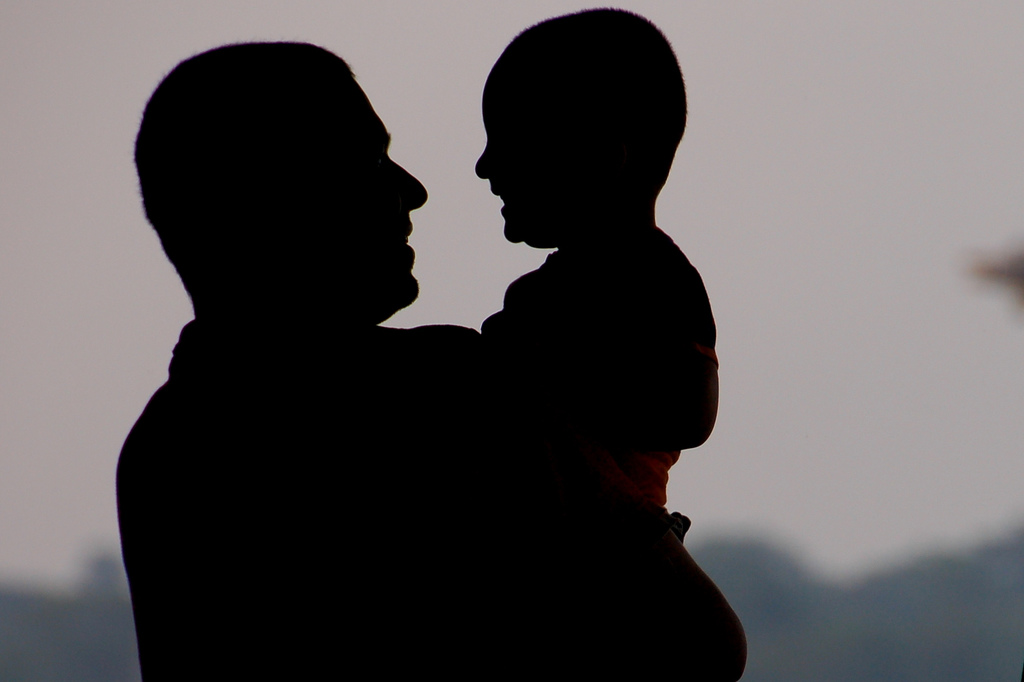 Did you catch the first word in the title? Yes, that’s paternal, as in dads. We don’t often see the words paternal and postpartum together, and you may not have heard the term “paternal postpartum depression” before at all. Postpartum depression is a topic that we associate with new mothers. In fact, the very definition is depression in a woman after she has given birth. But what about new fathers? Feelings of irritability, guilt, anxiety, isolation and sadness, loss of energy or changes in appetite are not yet as widely recognized as cause for concern in a man after the addition of a baby to the family as they are for the new mother. Yet paternal postpartum depression is a very real issue and “is currently underscreened, underdiagnosed, and undertreated” according to a 2012 article in the Journal of PediatricHealth Care aimed at helping care providers recognize and treat the condition.
Did you catch the first word in the title? Yes, that’s paternal, as in dads. We don’t often see the words paternal and postpartum together, and you may not have heard the term “paternal postpartum depression” before at all. Postpartum depression is a topic that we associate with new mothers. In fact, the very definition is depression in a woman after she has given birth. But what about new fathers? Feelings of irritability, guilt, anxiety, isolation and sadness, loss of energy or changes in appetite are not yet as widely recognized as cause for concern in a man after the addition of a baby to the family as they are for the new mother. Yet paternal postpartum depression is a very real issue and “is currently underscreened, underdiagnosed, and undertreated” according to a 2012 article in the Journal of PediatricHealth Care aimed at helping care providers recognize and treat the condition.
It is estimated that 5-10% of new fathers experience depression within the first year after birth. While it is not as well known as maternal postpartum depression, the effects of depression in new fathers has been well researched and is an important issue for doulas to know about as we evaluate how well the family as a whole is coping following the addition of a new baby.
Paternal postpartum depression has been associated with reduced bonding with the new baby, similar to what is seen in depressed postpartum mothers. Research has also found that paternal postpartum depression is associated with increased spanking by fathers and increased diagnoses of emotional issues, hyperactivity disorders and social problems in the child at age seven years.
The risk of paternal postpartum depression increases when the mother is already experiencing depression. Depression in both parents in the postpartum year is linked to babies who are less likely to be breastfeed and less likely to be put to sleep on their backs. Later vocabulary development in the child has also been associated with dual postpartum depression.
Clearly parental postpartum depression, whether in mothers, fathers or both parents, has strong impacts on the family overall. What can we do as doulas to address this important issue while staying within our scope of practice? Share information with your clients about maternal and paternal postpartum depression including evidence based sources on symptoms and risk factors. Provide families with resources in your community should the need arise or they request it.
If you have any resources to share on paternal postpartum depression, please share them in the comments or with the DONA doula community on our Facebook page: https://www.facebook.com/groups/62550155836/
Medline Plus: Postpartum Depression
– Adrianne Gordon, CD(DONA), MBA
photo credit: absolut xman via photopin cc


Reblogged this on The DONA Doula Chronicles and commented:
As we think about dads this month, in particular how we as doulas can support fathers during the childbearing year, we wanted to re-share important information about paternal postpartum depression. If you have any additional articles or resources on this topics, please share in the comments.